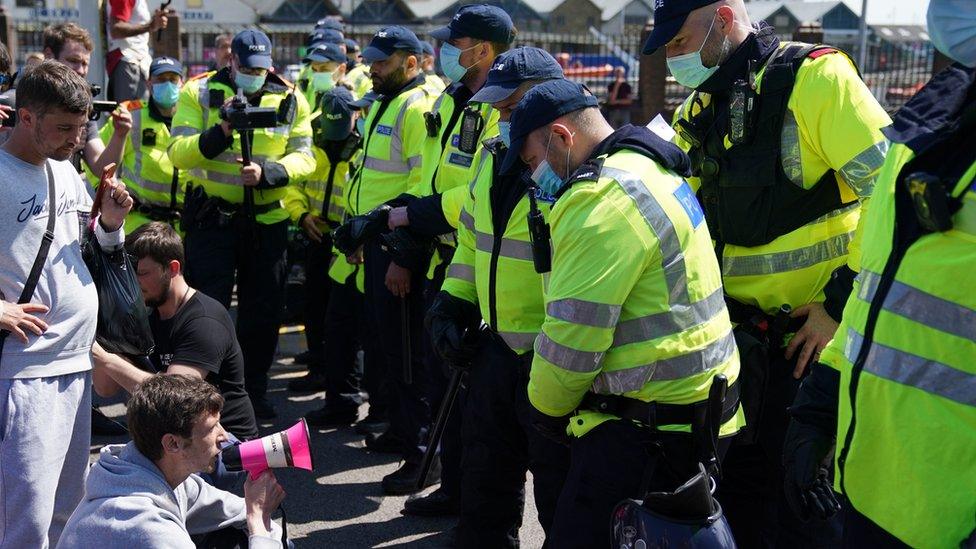Dover: Anti-immigration protest blocks road to port
- Published

Police said about 60 people joined the protest in Dover
Anti-immigration protesters have blocked a road in Dover, causing queues into the international ferry terminal.
Police made four arrests and officers dispersed a handful of people who had sat in the middle of the A20, leading to the Port of Dover.
About 60 people joined the protest, with some holding a banner that read "defend our borders".
Dover MP Natalie Elphicke condemned the demonstration and criticised the "disruption to trade and to our town".
"It's time to stop the small-boats crossings but today's protestors are not welcome in Dover," the Conservative MP said.
The protest started at 13:00 BST and lasted for about two and a half hours.
Mrs Elphicke said police had had a "challenging year", adding: "They deserved a proper bank holiday break this weekend - not being sworn at by loud-mouthed protesters from London or Essex or wherever."
'Minimal disruption'
In a live-streamed video, one of the protesters could be heard to comment on the "small numbers" in attendance, but said: "We still caused carnage, that's what we wanted."
Supt Andy Gadd said the protest had ended with "minimal disruption to the local community".
Two people were arrested on suspicion of public order offences, and two on suspicion of obstructing the highway.
On Friday, 336 people crossed the English Channel in 19 small boats, with at least 144 making the journey on Saturday, the Home Office said.
The number of people crossing rose sharply in 2020, which was "almost certainly a result of Covid-19 travel restrictions" leading to a reduction in the number of ferries and flights, the National Crime Agency (NCA) said.
The NCA said this week, external that "despite an increase in small boats facilitation, the overall organised immigration crime threat reduced" in 2020.
Home Office figures show that in the 12 months to March 2021, the number of asylum applications in the UK fell by 24% - to 26,903.